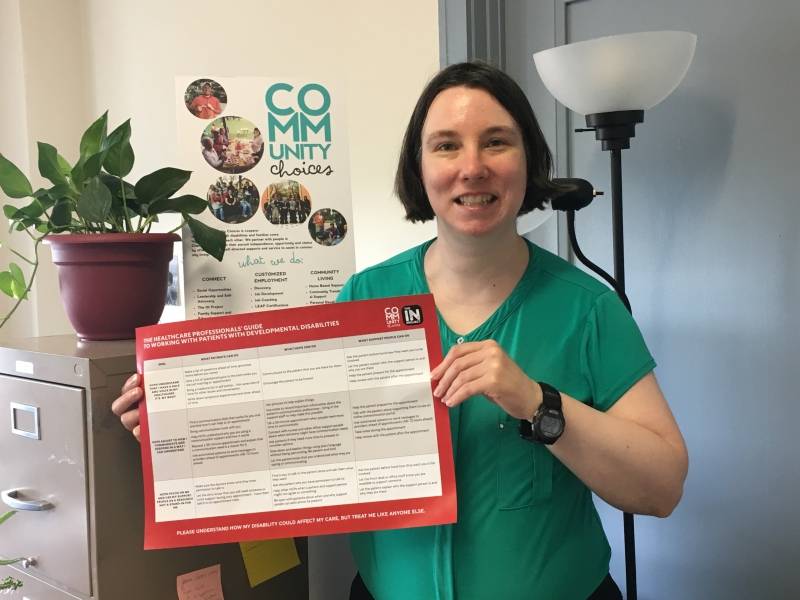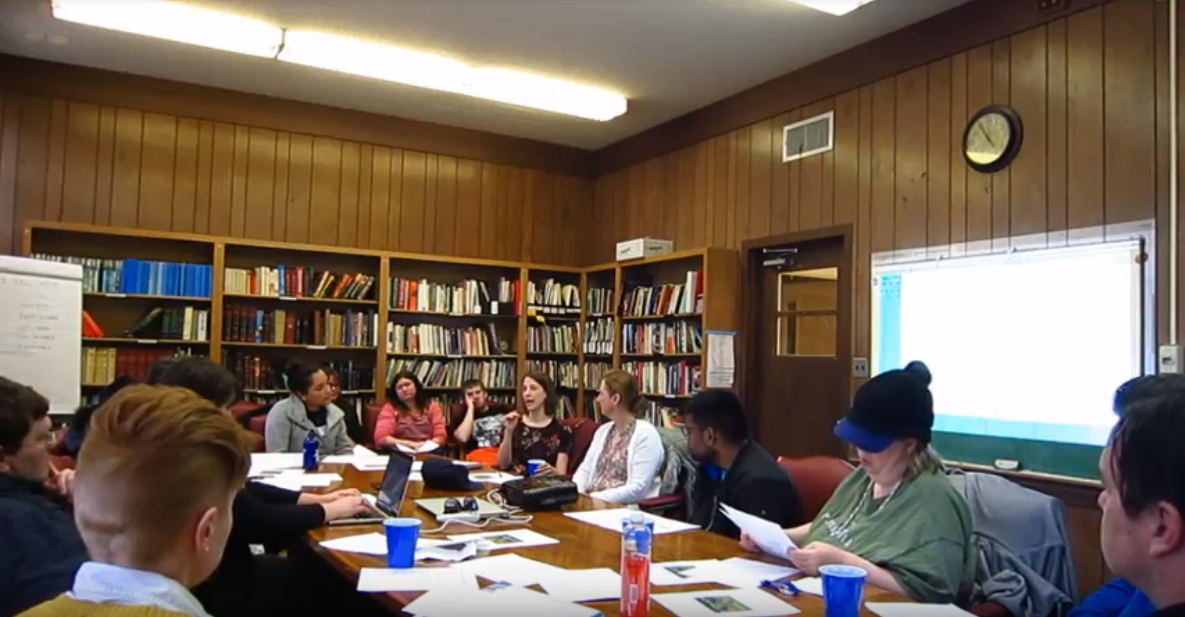For those of us with developmental disabilities, visits to the doctor and other healthcare professionals can be stressful. You don’t know how the doctor is going to interact with you. You don’t know if they will talk more to your support person or you, if they will explain things in a way that makes sense to you, if they will answer your questions, or if they will listen to your perspective over someone else’s. You also don’t know if they will follow up with you if you need more information, if they will give clear instructions for getting a test done — there are a lot of things that can make you nervous about the visit. This is one of the reasons Community Choices created the IN PROJECT.
The IN PROJECT is a Community Choices’ initiative funded by the Illinois Council on Developmental Disabilities. It’s about finding opportunities for people with developmental disabilities to have influence and a voice in the Champaign-Urbana community. The project addresses this in three ways: partnering with the C-U One-to-One Mentoring Program to provide opportunities for adults with disabilities to mentor students with disabilities, media engagement, and Community Conversations. In this article, I want to focus on Community Conversations.
The first Community Conversation the Advisory Board planned and hosted focused on relationships between healthcare professionals and patients with disabilities. The Advisory Board chose this topic because they and other folks with disabilities want to have better experiences at their appointments with doctors, nurses, dentist, and other healthcare professionals. Healthcare professionals from the C-U community were invited to discuss and work towards the following three goals: (1) Healthcare professionals understand that I have a voice in my healthcare — it’s my body, (2) healthcare professionals adjust to how I communicate and respond in a way that I can understand, (3) healthcare professionals focus on me and use my support people as a resource, not as a stand-in for me.

Representatives from Carle Foundation Hospital, Promise Healthcare, and Unit 4 Nursing attended the Healthcare Professional Community Conversation. The outcome of the conversation was the “Healthcare Professional’s Guide to Working With Patients With Developmental Disabilities.” The guide lists the three goals, and what patients, healthcare professionals, and support people can all do to meet each goal. For example, let’s look at goal 3: Healthcare professionals focus on me and use my support people as a resource, not a stand-in for me. One thing patients with developmental disabilities can do to meet this goal is to make sure the doctors know who they have permission to talk to. Healthcare professionals can find a way to talk to the patient alone and ask them what they want. Support people who are attending an appointment can let the patient explain who the support person is and why they are there. So, everyone is working together to make the experience more successful!
A link to the “Healthcare Professional’s Guide to Working With Patients With Developmental Disabilities” is here. The guide can be used as a resource for people with developmental disabilities, healthcare organizations and professionals, and support people. Support people can include family members, paid support workers, or friends.
After completing the guide, the Community Conversations Advisory Board was invited to present it to the Promise Healthcare Board, and will also be presenting at Promise Healthcare’s All Staff training. The Advisory Board hopes the guide will be a useful tool for many organizations and is willing to present and provide trainings in the future.
For any questions about Community Conversations, presentations, or trainings, please contact Hannah Sheets at Community Choices, 217-621-1090, or [email protected]. To learn more about Community Choices, check out their website.








